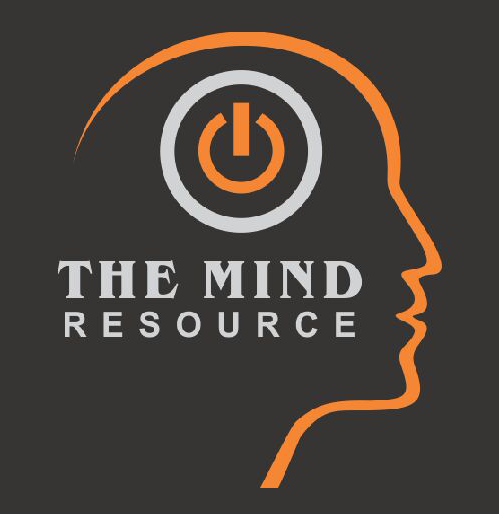
Ramblings from the Grassroots
by Latrone Walters
When we get mired in project after project it is difficult to take on the perspective of a beginner. When building something of importance it seems more productive to reengage new projects or enduring issues with the perspective that you have always used in past situations. But doing so could leave blindspots created by your own bias on what we believe a thing should look like. In many ways this is how opportunities to capitalize on emerging ideas are missed. Because we naturally suppress information that doesn’t reconfirm the ideas that we currently believe in, this in turn can stifle creativity quite a bit. Especially in dealing with innovations in human relations.
What could be missing are the possibilities of what a thing could be. Don’t get me wrong, I don’t believe in reckless abandonment of all discernments and currently held preferences. But that we can take time to exercise the detachment we have with our schemas within the midst of particular dilemmas and/or situations. By taking on a “Beginner’s Mindset” in a calculated way you can enter concepts from new passageways that could assist in fixing holes in the original idea.
Many great scientists, theologians, and philosophers throughout history have been claimed to adopt this approach of the Beginner’s Mind when dealing with issues in our world. One of the most notable being Albert Einstein. He was quoted having said “We cannot solve our problems with the same thinking we used when we created them.” In a sense it seems that he was expressing that backing out of old patterns of thinking and reengaging with new trails of thought are essential when navigating through obstacles.
Another quote by who is known as arguably the greatest man to ever walk the Earth, Jesus Christ, was quoted in Scripture saying, “I praise you, Father, Lord of heaven and Earth, because you have hidden these things from the wise and learned and revealed them to little children.” Theologians from past to recent times have agreed that the use of the words “little children” or in The King James version “babes” were not describing literal kids in entirety but metaphorically it was in relation to new believers in Biblical Scripture. Once again it can be gained through this quotation that great thinkers have revered the mental approach of the purposeful disengagement of preferred methods of thinking coupled with the new beginner’s approach in critical thinking. At first it may seem that this is a stretch until we see that the famed Greek philosopher Plato once quoted, “The beginning is the most important part of work.” Also following was German theologian Meister Eckhart’s quote when he said, “Be willing to be a beginner every single morning.”
The issues that these type of great thinkers encountered weren’t issues that other thinkers haven’t approached. In a lot of cases the issues they approached cognitively had been addressed by others before them. But these out-of-the-box thinkers made a practice of asking the question, “What if what you always thought to be true were wrong?” How would you approach the same obstacles and challenges? What biases would you relinquish and how would that help you to reach new ideas? The creative thinker makes a game of that type of self assessment. The type of thinking that asks, “What parts of my analytical processing needs reassessment? What parts are outdated for the new challenges that arise?”
Not all the time, but in many cases when you seem stuck on a problem and/or project this sort of challenge to your biases can be rewarding. In the way of the refreshment of relevant ideas and problem solving skills. So you may ask the question next, “How do I take on the calculated use of the Beginner’s Mind when generating new ideas to old problems? And how do I get into a state of flow within the Beginner’s Mindset?”
1. Detach from result and enjoy the experience.
The first thing to realize is that the Beginner’s Mindset does not literally mean the erasure of all subsequential thoughts. It means just relinquishing the tension of outcome. Instead explore with the freedom of unadulterated curiosity about any issue. As adults most of our actions and thoughts towards projects are tied with a result of something. The Beginner’s Mindset is engaged only with the experience of interacting with that issue. In that comes the reward in itself. By freeing up mental vacancy acquired by the thought of outcome you can make space for a free flow of observance. This leads to more fluid mental connections to the internal and external environment. In time this leads to more ideas.
2. Sleep on it.
The second practice seems simple but it must be reiterated for those type A personalities that will remain on top of the problem for hours or days at a time. Sleep on it. Literally, if you don’t give your mind time to rest away from all the internal tension created, all that activity will only reinforce the old thinking patterns. Remember to schedule your times for brainstorming but also be diligent about cutoff times for leisure and relaxation from the issue.
3. Conscious Curiosity
The third practice is to take on what I call conscious curiosity. By actively seeking out new experiences that make you a beginner it will help you to take on a synonymous approach when reengaging your projects. On top of that once again our mind will be capable of pinpointing more connections within our projects.
4. Meditate Young Grasshopper.
The fourth and final practice to do which i consider one of the most important is mindfulness meditation. Whether it’s guided or just by yourself in silence, the emotional observation that is used during meditation is extraordinary. Meditation is like working out or physical exercise. As in it doesn’t come natural to all of us but with practice and patience you will be more mentally stronger, mentally flexible, and mentally durable. When concerning it’s relation to the Beginner’s Mindset it is exceptional in creating that state in wakefulness. It will help create a clean slate to think from when engaging problems. Since the goal of meditation is to improve mindful awareness the mind must release external processing to do that. To become aware of your own mind takes more of the Beginner’s Mind than a mind full of preconceived notions.
Really in the end the though processes that we witness are cyclical and resonates within patterns. In knowing this we can move through the integrated methods of thought that can unlock more of our creative abilities. As they say, “Every end is just a new beginning.”


Dope